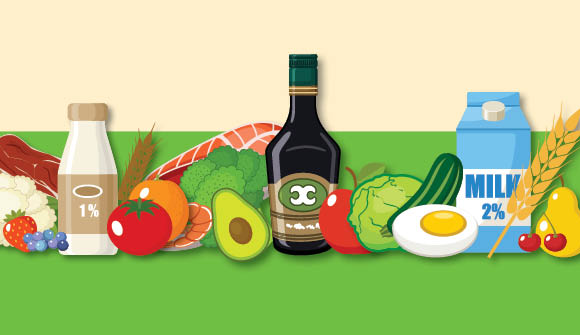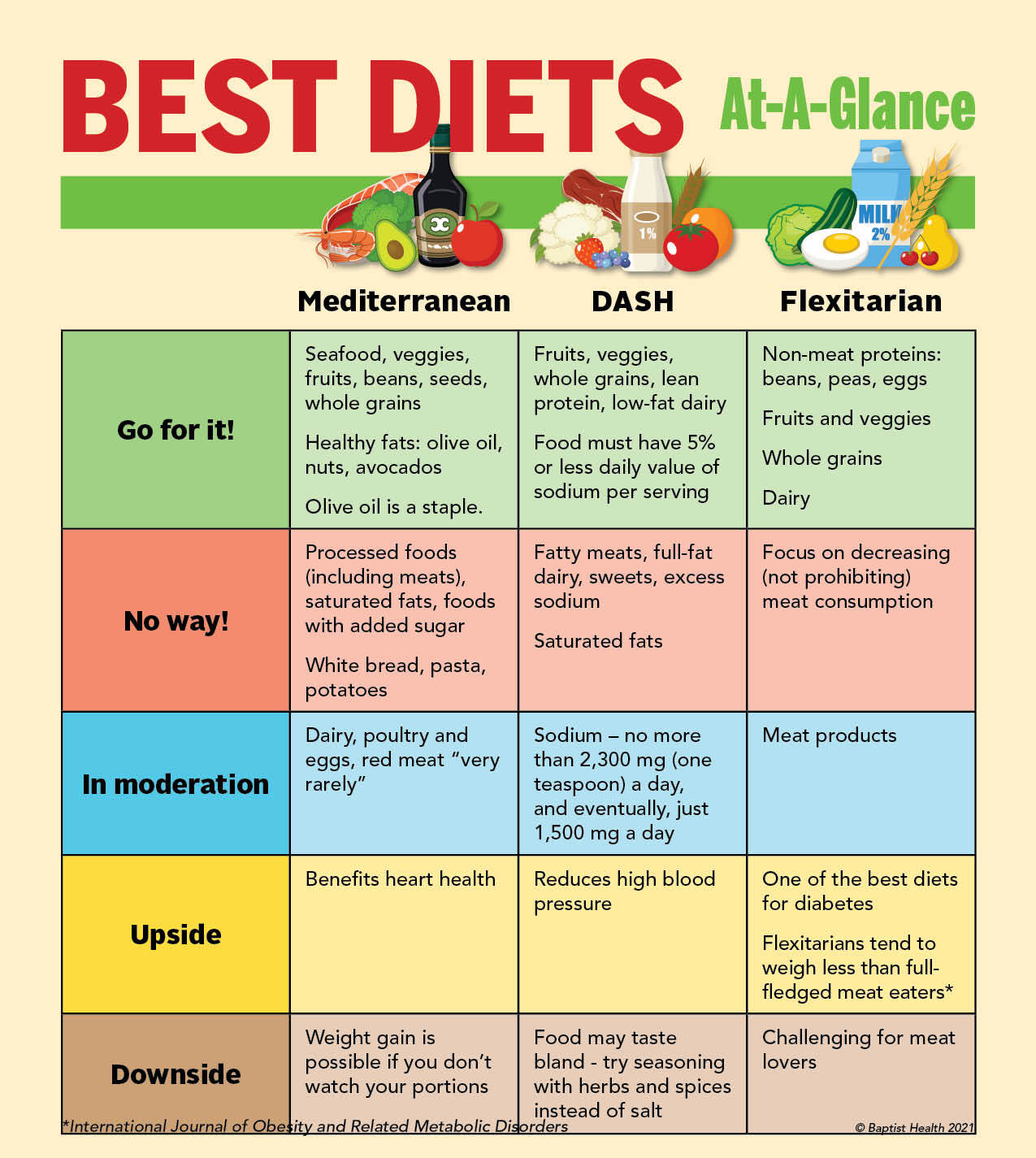Top diet differences
Flexitarian feast or Mediterranean meal? A DASH of knowledge to help you eat right.
Article Author: Beth Stambaugh
Article Date:

Drum roll, please. The best diet award for 2022 goes to…the Mediterranean diet, according to U.S. News & World Report. This is the fourth year in a row the heart-healthy eating plan was named No. 1. Tied for second place are the DASH diet and the Flexitarian diet.
The study looked at 39 diets and judged each on criteria including:
- How easy the diet is to follow
- Long-term weight-loss potential
- Health and safety
- Ability to prevent or manage chronic conditions like diabetes and heart disease
All three diets reduce or eliminate processed foods and focus on fruits, veggies, beans, lentils, whole grains, nuts and seeds. And some good news: none of these diets involves cutting calories.

A Mediterranean mindset
This eating plan is based on typical diets found in Spain, Italy and Greece.
“The Mediterranean diet is the gold standard for heart health,” said Pamela Rama, MD, a cardiologist for Baptist Heart Specialists. “It’s proven to be effective in reducing cardiac events, stroke and blood pressure.”
Many studies have shown those who are at high risk of cardiovascular disease benefit from a diet supplemented with olive oil and nuts versus a low-fat diet, according to Dr. Rama.
“These healthy fats help to reduce inflammation and stress in the body, which is critical in helping prevent chronic diseases," she said. “Following this diet is better than any medication we can prescribe, especially when you consider the rate for a subsequent cardiac event is as high as 70%.”
When following the Mediterranean diet, stay away from saturated fats, such as cream, cheese and butter. Simple carbs and sugar are not allowed. Dark chocolate, which is high in antioxidants, is permitted occasionally. Another win? Red wine, also because it’s high in antioxidants, is allowed in moderation (1 - 2 glasses a day).
DASH diet
DASH stands for “dietary approaches to stop hypertension.”
“The DASH diet is low in sodium and was developed to prevent and treat high blood pressure,” said Dr. Rama. “It is very similar to the Mediterranean diet. Both advocate eating whole foods rather than processed foods.”
The tricky part is capping sodium at 2,300 milligrams a day, and then eventually lowering it to about 1,500 milligrams. As a reference, a teaspoon of salt has 2,325 milligrams of sodium.
Sodium is hidden in many unexpected foods. “Reading labels is important when following the DASH diet,” said Dr. Rama. “Look for foods that have a maximum of 5% of the daily value of sodium per serving.”
Flexi-WHAT?
Flexitarian is a mix of two words: flexible and vegetarian. It focuses on a vegetarian lifestyle with some animal products in moderation. It is predominantly plant-based but allows you to “cheat or satisfy” your craving for meat once in a while.
“You don’t have to eliminate meat completely to get the health benefits of a vegetarian diet,” said Dr. Rama. “Eating more plants and less meat can help improve your overall health and lower your rate of heart disease, diabetes and cancer.”
Dr. Rama’s advice
No matter which diet you choose, here are some helpful tips:
- Avoid all processed foods, especially refined sugars.
- Replace saturated fats (like butter) with monounsaturated fats (like olive oil).
- Reach for nuts for a snack instead of a cookie.
- If you can handle a plant-based diet, try it.
- If you drink alcohol, limit it to one drink a day for women and two for men.
- Exercise for at least 30 minutes daily.
If you need help with your diet and nutrition goals, Baptist Wellness Centers have experts to guide you along the way.



